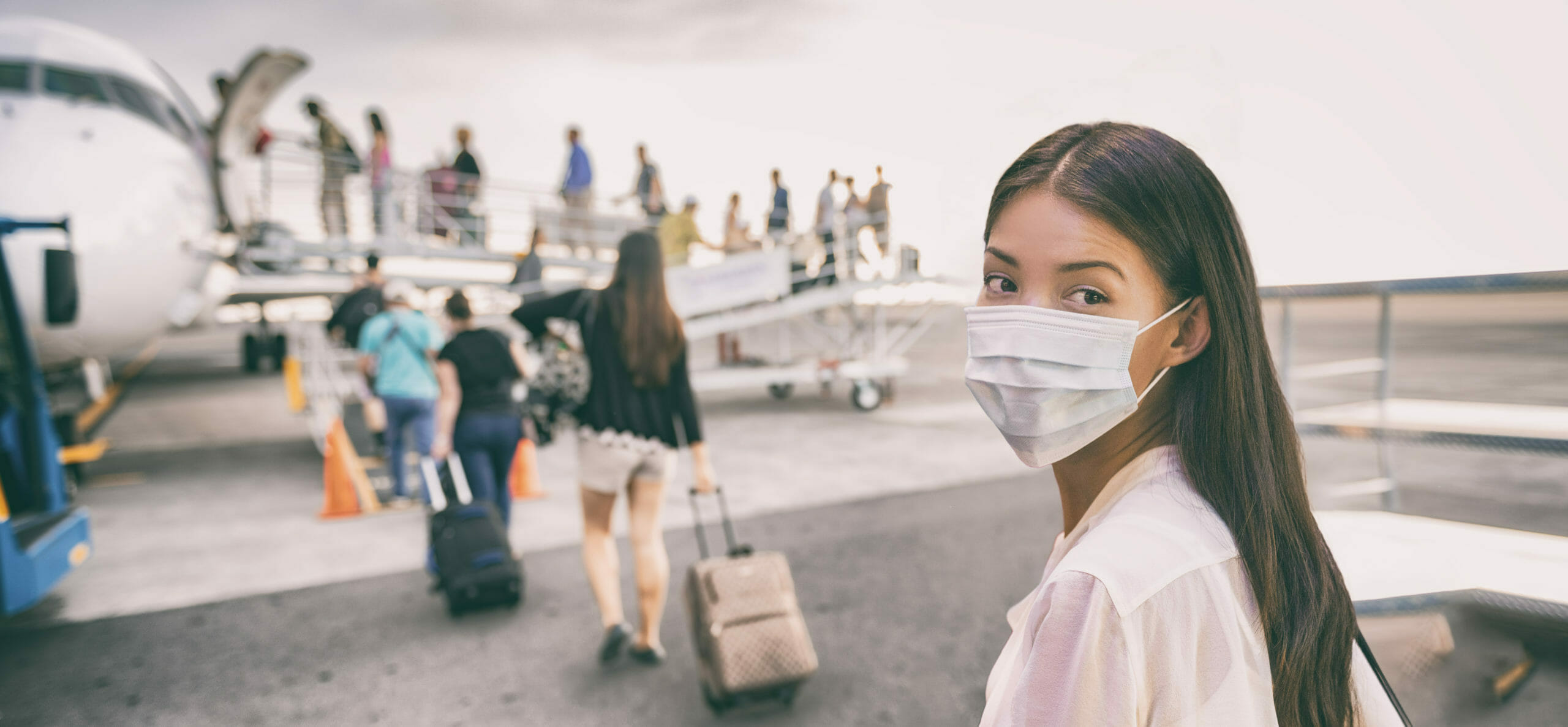International travel in the age of coronavirus is more complicated than ever. Because of pandemic-related travel bans, travelers face major challenges when journeying in and out of the United States and many other countries. Some people must travel, however, such as when there is a critical business issue or the death or illness of a loved one in another country. When someone must be somewhere, figuring out how to get there may require a considerable level of creativity and advocacy.
Current bans for travel to and from the U.S.
There is a common misperception that people of certain nationalities are barred from traveling to the United States. In fact, it is not the person’s citizenship that is of issue, it’s where the person has been. Currently, bans related to the virus are in place for travelers who have been in China, Brazil, Iran, the United Kingdom, Ireland or any of the countries in Europe’s Schengen Area in the last 14 days. If a traveler from elsewhere has a layover in one of those countries, it still counts, even if the traveler never leaves the airport. Exceptions are made for U.S. citizens, U.S. permanent residents and certain other individuals. As the U.S. itself is viewed internationally as a coronavirus hot spot, travelers from the U.S., with exceptions, are banned from entering many countries, including the European Union, Canada, and China. With so many bans and a host of intricate exceptions to the rules, figuring out the right solution for a particular traveler requires a holistic approach.
Break the chain of travel
One solution to getting into the United States from a barred country is to break the chain of travel by going to a country that is not on the list and staying there for 14 days before continuing to the final destination. It goes without saying that the additional two-week time frame will be highly inconvenient for most travelers and in many cases will add considerable expense to the journey. Before attempting this option the traveler must educate themselves about any requirements for entry to that country, including obtaining a visa or confirming they are visa exempt under the country’s immigration laws, and be prepared to follow any quarantine or other requirements imposed by that country after entry.
Check eligibility for an explicit exemption
Several explicit exemptions to the travel ban have been detailed in presidential proclamations released this year. In addition to U.S. citizens and green card holders, several other individuals entering the U.S. are exempt from the restrictions, including spouses of citizens or green card holders; foreign national parents or guardians and siblings of unmarried U.S. citizens or permanent residents under age 21 (the siblings also must be under 21 and unmarried); foreign national children, foster children, wards or certain prospective adoptees of U.S. citizens or permanent residents; foreign nationals traveling at the invitation of the U.S. government for purposes related to containment or mitigation of COVID-19; foreign air and sea crewmembers; and holders of certain non-immigrant visas.
Consider applying for a “national interest exception”
If you are ineligible for an explicit exemption, you may be able to apply for a national interest exception (NIE). Each of the presidential proclamations issued includes an exception for any foreign national “whose entry would be in the national interest as determined by the Secretary of State, the Secretary of Homeland Security, or their designees.” Although travelers from any of the banned regions can apply for NIEs, the Department of State has only provided guidance for decisions pertaining to certain travelers from the impacted European countries. According to information posted on the U.S. Embassy in Germany’s website, NIEs may be granted in several categories, including temporary travel that provides a substantial economic benefit to the U.S. economy. This includes senior-level managers and executives who provide strategic direction necessary for the success of a company or venture, as well as their dependents. The guidance also mentions technical experts and specialists to install, service, maintain or receive training for vessels, machinery and other specialized equipment used by U.S. and foreign firms with a substantial investment here. Professional athletes, along with their dependents and essential staff, may be allowed to enter the U.S. to participate in major sporting events that generate economic benefits. Investors whose travel in connection with investment or trade that substantially impacts the U.S. economy, and their dependents, may also be eligible. Other categories mentioned in the guidance include certain public health professionals, researchers, students and academics.
How to apply for an NIE
U.S. Embassies and Consulates and Customs and Border Protection offices (CBPs) have the authority to issue NIE waivers. Barst Mukamal & Kleiner partner Alexis S. Axelrad, a leading national expert on NIEs, collaborated with the CBP at JFK International Airport in New York this spring to set up the first CBP-based NIE approval program. The program has since been replicated at other CBP offices. CBPs issue NIEs for individuals traveling for work but generally not their spouses or children; embassies, on the other hand, are approving some NIEs for the dependents. Based on the individual client’s situation, attorneys will consider these factors and others and determine on a case-by-case basis the best place to apply.
Founded in 1930, Barst Mukamal & Kleiner is one of the oldest immigration law firms in the United States. The firm’s immigration and business lawyers provide comprehensive immigration and business law services. Clients should contact their Barst attorney with any questions regarding the impact of COVID-19 on international travel. For general inquiries or to set up a consultation, please contact us.


